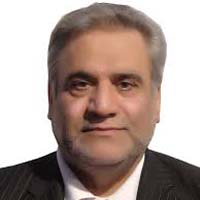Evaluating the Effectiveness of Executive Functions Training Using Family-Based Play Therapy on Executive Function Skills in Children with Attention Deficit Disorder
Attention Deficit Disorder (ADD) is the most prevalent disorder among the subgroups of Attention–Deficit Hyperactivity Disorder. The most important problem of children with ADD is deficits in executive function (EF) skills, which result in adverse outcomes and issues for these children and their families. The most effective programs for EF skills are those that directly challenge it and support it indirectly through joyful activities that children love. Therefore, play can provide an appropriate context for children to improve their EF skills. In addition, involving parents in the treatment process is considered one of the most essential treatment approaches for children with ADD, so family–based play therapy can produce positive results in the field of training EF skills in these children. In this regard, the present study aims to investigate the effectiveness of executive function training based on family–based play therapy in children with ADD.
The method of the present study was quasi–experimental with a pretest–posttest design and a control group. The sample consisted of 24 elementary students living in Tehran City, Iran, with their parents in the summer of 2021. They were selected by convenience sampling method. The inclusion criteria were as follows: children's age range of 6–10 years, minimum education diploma for mother, the presence of symptoms of ADD in children according to the expert psychologist's opinion and based on the criteria of Diagnostic and Statistical Manual of Mental Disorders– Fifth Edition (DSM–5). The exclusion criteria included receiving another intervention program for the child and his mother at the time of the study and more than three absenteeism sessions in the program sessions. The executive functions training based on a family–based play therapy program was designed and implemented by the researchers of the present study, based on the Barklay model of executive function (2012), to improve executive function skills in children with ADD. Mothers in the experimental group (n=12) received ten 3–h weekly sessions of executive function training using family–based play therapy. They trained their children under the supervision of a psychologist, whereas the mothers in the control group (n=12) were placed on the waiting list. The Long Form of Barkley Deficits in Functioning Scale Children and Adolescents (Barkley, 2012) was used to gather data. The obtained data were analyzed by multivariate analysis of covariance (MANCOVA) and univariate analysis of covariance at a significance level 0.05 in SPSS version 22.
Based on the results, executive functions training based on family–centered play therapy significantly improved the total executive function skills (p=0.013) of children with ADD. Also, it was significantly effective in improving self–management to time (p=0.023), self–restraint (p=0.014), self–motivate (p=0.005), and self–regulate emotion (p=0.023). However, there was no significant difference between the study groups in self–organize (p=0.280).
According to the findings, training of executive functions based on family–based play therapy is efficacious in improving the skills of executive functions and components of time self–management, self–restraint, self–motivate, and self–regulate emotions.
-
تاملی پیرامون برخی از مسائل آموزشی، فرهنگی و اجتماعی ایران
*
نشریه توانمندسازی کودکان استثنایی، بهار 1404 -
Development of a Comprehensive Parenting Program with a Rational Approach
Maria Khalili Jamnani, Masoud Gholamali Lavasani *, Ahmad Abedi, Gholamali Afrooz
Journal of Experimental and Cognitive Psychology, -
Designing and Validating a Family based Mental Empowerment Program for Improvement of Cognitive Processes, Psychological Hardiness and Academic Performance of slow learners’ students
Samad Azimi *, Gholamali Afrooz, Aliakbar Arjmandnia,
Journal of Cognitive Science Research, Mar 2025 -
Effectiveness executive function training program using augmented reality on Communication skills in children with high-functioning autism spectrum disorder
Shirin Mojaver, Aliakbar Arjmandnia*, Mohsen Shokoohi Yekta, , Fatemeh Jafarkhani
shenakht Journal of Psychology and Psychiatry,




